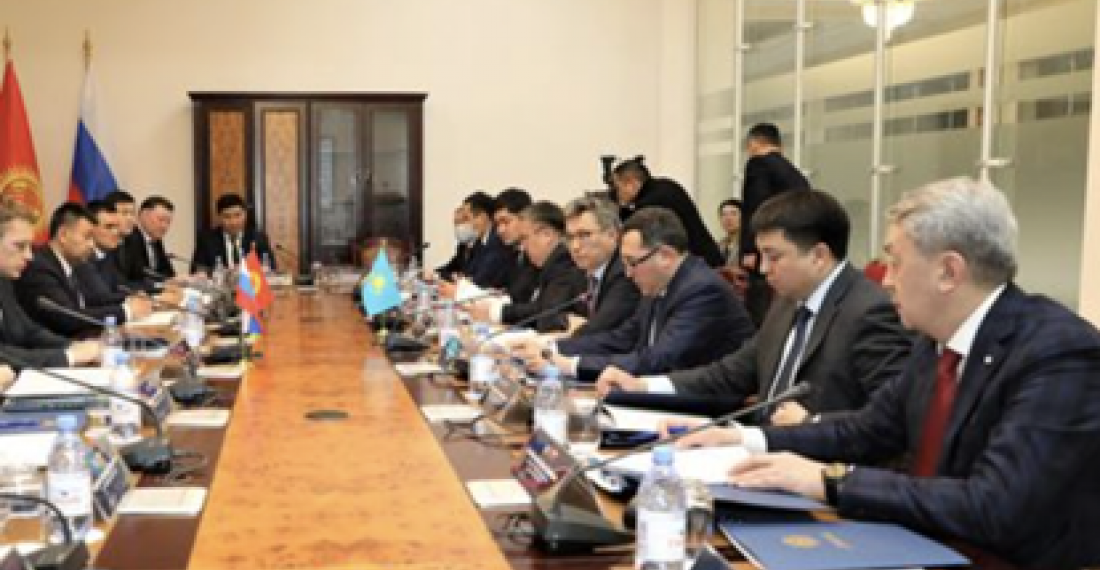The customs and tax authorities of Kyrgyzstan, Kazakhstan, and Russia held a meeting on 15 February to discuss additional measures to implement mutual agreements, how to combat the shadow economy in the three countries, and the reliability of reporting costs in shipping documents for goods. During the meeting, the issue of smuggled Chinese goods came to the forefront.
The three countries, all members of the Eurasian Economic Union (EAEU), held the meeting in Almaty, Kazakhstan. The discussion was hosted by Kazakhstan’s Deputy Prime Minister and Minister of Trade, Bakhyt Sultanov. The Russian delegation was headed by Alexei Sasanov, the Deputy Minister of Finance of Russia, and the Kyrgyz delegation was led by Arzybek Kozhoshev, the First Deputy Chairman of the Cabinet of Ministers.
While the official topic of the meeting was to ensure effective coordination of the actions of the tax and customs services of the three countries, the subject of parallel or grey imports took centre stage. This refers to the importing of non-counterfeit items that are traded without the intellectual property owner’s consent. Sultanov said that this practice “cannot be left without due attention from the governments of our countries.”
Thanks to data from the World Trade Organization and the International Trade Center, Kaktus, a Kyrgyzstan based outlet, estimated that over $60 billion in the trade of goods between Kyrgyzstan and China had been undeclared from the period of 2001-2020. In Kazakhstan, the difference in data between the National Statistics Bureau in Kazakhstan and Chinese customs data came to $7.1 billion for the year of 2021.
While Kazakhstani and Kyrgyz officials point to both parallel imports and different data-collecting methodology as the source of the discrepancies, some investigative journalists posit that the differences in customs data arises due to corruption within the customs services. Only last year, Raimbek Matraimov, a former Kyrgyz customs official, was found guilty of corruption in a large-scale money laundering case. Furthermore, eight criminal cases have been filed by investigators in Kazakhstan.
The issue of smuggling is not only prevalent in Kazakhstan and Kyrgyzstan, but across all of the EAEU, with Russia the only exception. The discrepancy in customs data leads to lower customs revenue for the EAEU as customs levies from the countries are sent to a communal pot. EAEU-China trade turnover was estimated at $126 billion highlighting the large cost of smuggling along the Chinese border with the EAEU.







